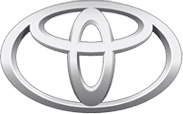Why does Toyota make hydrogen cars?

-
Why does Toyota propose hydrogen fuel cell technology as a power solution for zero emission vehicles? We look at reasons why hydrogen is the ideal source of clean energy.
-
-
Putting Energy Needs Into Context
Energy and transport sectors are being presented with huge challenges in decarbonising society and providing energy security, while simultaneously improving air quality and minimising environmental impact. The UK government has delivered a particular focus in this respect, targeting an 80% reduction in all greenhouse gases by 2050, compared to 1990 levels.
With numerous social, political and economic issues to consider, it is not possible for a single solution to meet all needs. However, the fundamental relationships between these issues and objectives are consistent across the globe.
-
Why Hydrogen?
Hydrogen is the most abundant element in the universe and has the highest specific energy density of any non-nuclear power source. It is inexhaustible and non-toxic; it can be created using many sources, stored indefinitely and can be shipped relatively easily.
Millions of tonnes of hydrogen are produced and used without incident every year and we can now handle it more safely than fossil fuel. It is already being used as a power source in buildings, and in mobile applications such as passenger vehicles, fork-lifts, ships and trains. Testing is even underway to produce hydrogen-fuelled aircraft.
-
Hydrogen Production
Producing, compressing and dispensing hydrogen does consume some energy, but this can be combatted by using surplus renewable energy that might otherwise be wasted. Hydrogen is also a by-product of certain industries, some of which can create emissions, yet technologies and systems are now available to ensure that its production is free of emissions. Once produced, hydrogen is also efficient and cost-effective to distribute.
Interestingly, most new vehicle hydrogen refuelling stations create hydrogen on-site with electrolysis, using 100% renewable surplus energy. No deliveries are needed and there are no emissions from either the production process or the fuel’s consumption. These stations are containerised and only require water and power to operate. Power is supplied on green tariffs, or at some stations is sourced directly from solar or wind on-site.
-
Toyota and Hydrogen
Toyota believes that there is currently no single solution to reducing vehicle emissions or meeting customer transport needs. It is about delivering the right vehicle at the right place and at the right time, so investments have been made in all areas in order to meet immediate, medium- and long-term needs throughout the world.
-
In the shorter term, petrol-electric hybrids and plug-in hybrid vehicles look likely to dominate, while pure battery electric vehicles are viewed as a more expensive, niche solution. Fuel cells offer the greatest future potential but require significant investment and the use of advanced technology.
The Toyota Mirai is the world’s first full production hydrogen fuel cell saloon and winner of the World Green Car award in 2016. It can be driven for around 300 miles from a full 5.0kg tank of hydrogen. That quantity of fuel is produced from 50 litres of water, and in the course of driving that distance the car’s only emission will be 50 litres of water. Nothing is consumed. The whole process is simply a transfer of energy.
Annual production and sales of Mirai have increased yearly, going from about 700 units in 2015 to around 2,000 units in 2016 and 3,000 units in 2017. At present, the model is sold in 11 countries: Japan, the United States, and nine countries in Europe. In the UK, 74 units have been sold up to June 2018 but that figure will rise significantly when the Met Police and private hire firm Green Tomato Cars receive their full fleet orders. Such growing confidence in hydrogen-powered transport has allowed Toyota to plan annual production of fuel cell vehicles to 30,000 units by the early 2020s.
-
In considering the significance of Mirai, it is worth reflecting on the impact of Toyota’s hybrid technology. With more than 11.7 million petrol-electric hybrid vehicles sold worldwide since the introduction of the original Prius in 1997, and many other vehicle manufacturers adopting similar technologies, Toyota’s leadership is clear.
-
A Hydrogen-Fuelled Future
Thanks to its universal availability, Toyota believes that the long-term use of hydrogen is likely and its adoption will rapidly accelerate. The range of applications will increase and energy suppliers will use it as a fully renewable energy vector, enabling cheaper, more efficient power supply and vehicle refuelling.
The importance of hydrogen in the future is underlined by the recent formation of the Hydrogen Council, a global group bringing together senior executives from leading fuel, energy, manufacturing and mining businesses. These include Air Liquide, Alstom, Anglo American, BMW, Daimler, Engie, Honda, Hyundai, Kawasaki, Linde, Shell, Total and Toyota. Having committed to spend $5 billion in the next five years, the council’s intention is to co-ordinate and accelerate hydrogen investment and deployment in all sectors.
Although there are issues of customer acceptance that will take time to solve, there is an expectation that by the mid- to late-2020s we will see hydrogen power reach the mainstream – a significant shift in the energy sector brought about by growing economic, political and environmental pressure.






